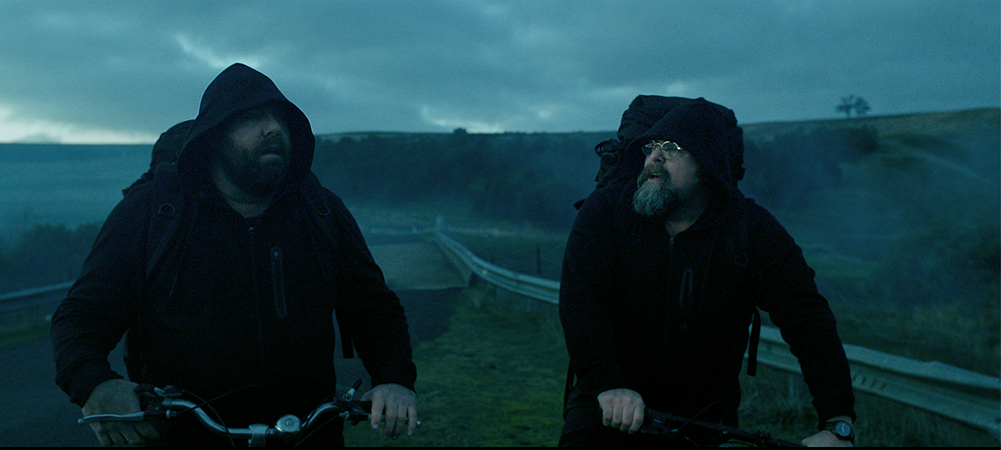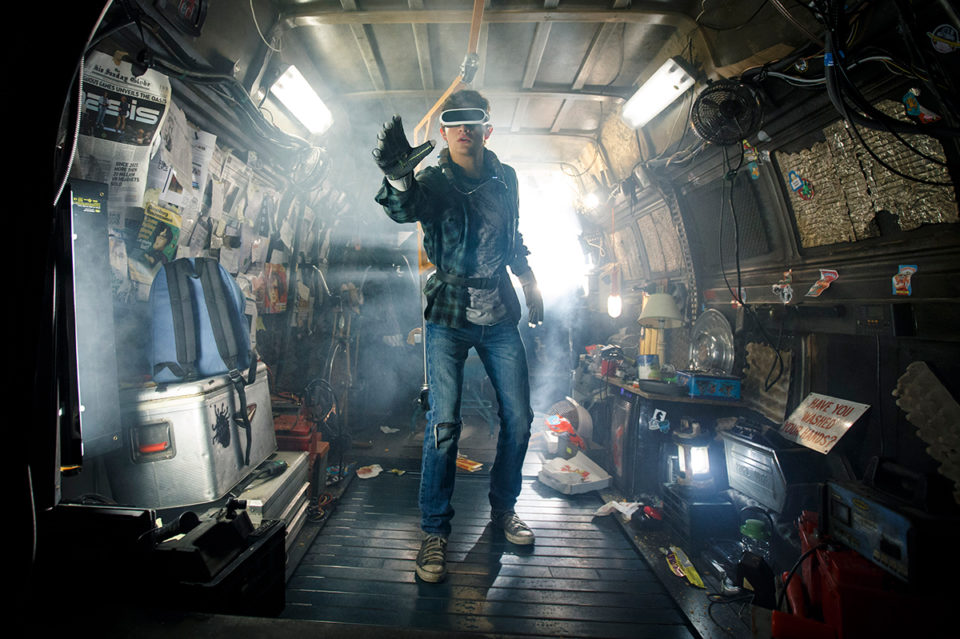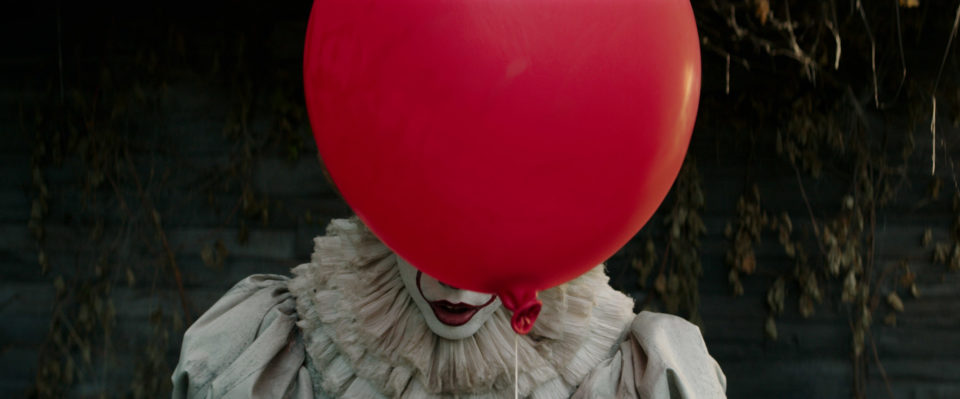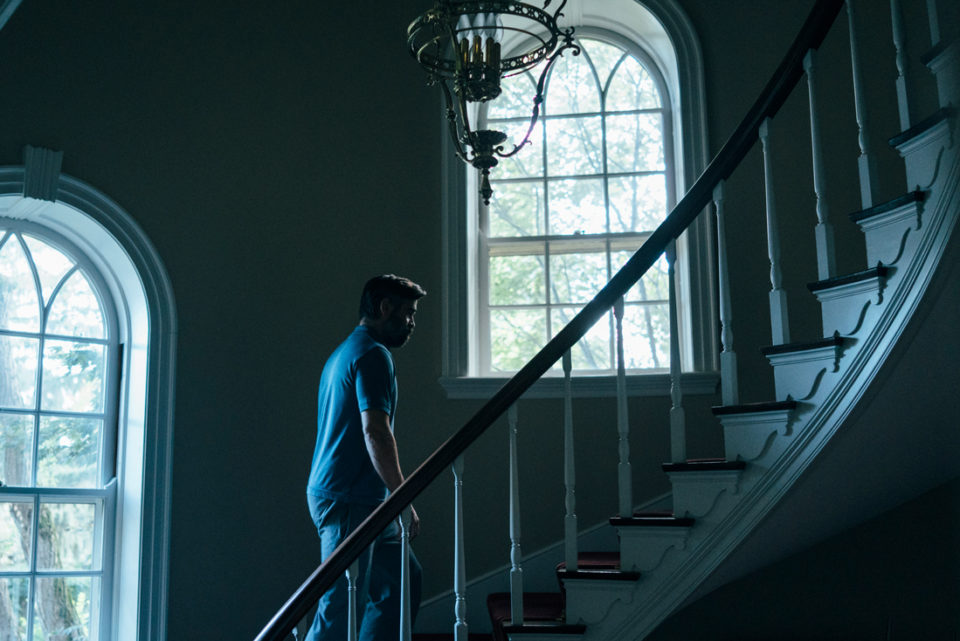Two brothers cycle through the early morning to their childhood cottage, on a dilapidated farm in country Victoria. Outfitted for home invasion, in matching black hoodies and backpacks, they slip hospital booties over their Blundstones before they step inside. Elder brother Jeff (director Clayton Jacobson) wields an anal-retentively-compiled to-do list over younger brother Terry (real-life junior sibling Shane Jacobson); a rigid schedule of preparation that will culminate with the cold-blooded murder of the brothers’ stepfather, Rodger (Kim Gyngell), who’ll appear in the evening to prepare the family horse for sale.
The boys’ mother (Lynette Curran) is dying, and the brothers are seeking to secure their inheritance. But their real motive is a list of grievances—against Rodger, the genial pothead whose arrival precipitated their dad’s suicide; against a world that corkscrews inwards toward their own failings.
They’re a pair of would-be Aussie Orestes, for the era of the Large Adult Son. This meme of curdled patriarchy—timely in a US irrevocably coloured by the Bush and Trump scions—gets an appropriately small scale local reflection, here. Jeff and Terry obsess over their patrimony, but their father was abusive, and their current troubled lives (and meagre homestead) are no testament to any kind of glorious dynasty.
Brothers’ Nest is the second feature from Clayton Jacobson, and the second to star Shane, after their 2006 mockumentary Kenny. Like that film, this one is a family affair – Jaime Brown’s script was written for the brothers, and their father, Ronald, shows up here in photographs, as the boys’ absent dad – but in a much bleaker register. They seem to relish the opportunity to twist their ocker affability to darker ends.
The Jacobsons are large men, with the heft of bulls but the contour of toddlers. They make an charismatic double act – Tweedledumb and Tweedledevious. Though Clayton is the weaker performer (he acts with his hands), their real fraternal link is essential to the film’s effect. The physical resemblance is arresting and unfakeable; the better to offset the difference in moral scruple that opens between Jeff and Terry as the day proceeds inexorably to its bloody conclusion.
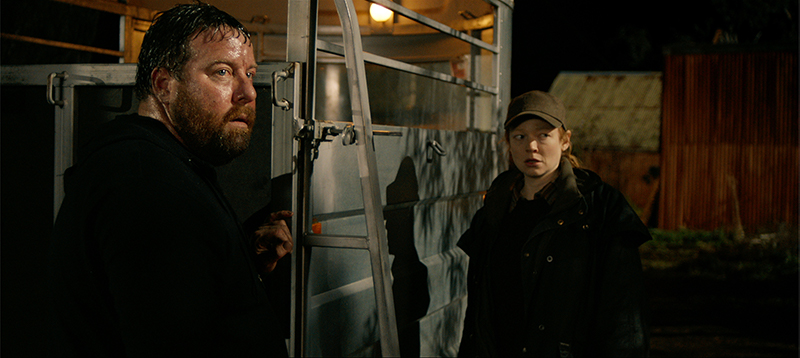
Shane Jacobson, left, and Sarah Snook. Image: label
With all of five speaking roles, and a single location, it’s a work of pleasingly compact dimensions. Cinematographer Peter Falk coolly delineates the geography of the farmhouse, which has been expertly dressed (by production designer Robert Perkins) in aspirational Antipodean kitsch, complete with fading china and crystal cabinet. The mood borrows heavily from the handbook of the Coen Brothers, who are masters of the awful comedy that comes from watching dim people dig a criminal hole they cannot possibly climb out of.
But though Joel and Ethan earned their reputations as sadists, the Jacobsons have softer hearts. The tone here stumbles toward tragedy when it could remain as farce – it’s sometimes uncertain whether we should laugh at the brothers or cry for them. This emotional appeal is not quite coherent, but it also tilts the film from a portrait of individual venality into a funeral pyre for a common species of Australian manhood: wounded, unfulfilled, and driven by the primal animus of real estate.
If this is our masculinity, Brothers’ Nest seems to say, then find us an alternative. Throughout the day, the boys confidently anticipate the arrival of the “horse guy” who’s taking their animal, but when the buyer arrives it’s a woman (Sarah Snook), and she’s purchasing the steed as a gift for her daughter. It’s an amusingly low-key ray of hope: at least one part of this family might get out unscathed.


